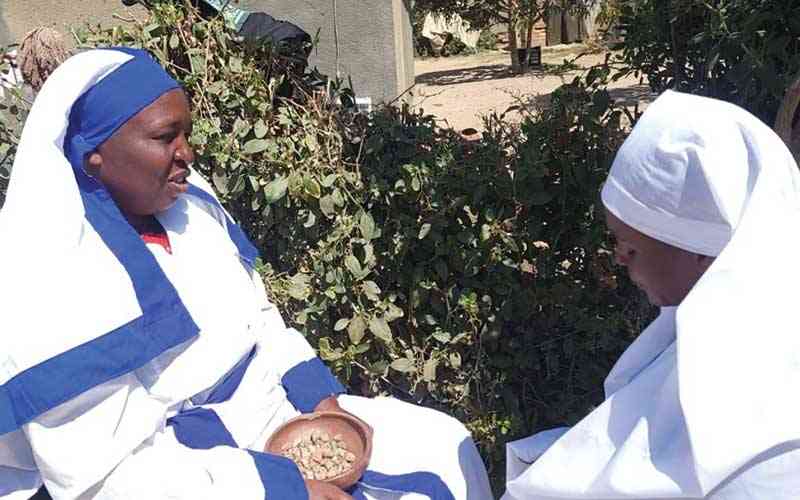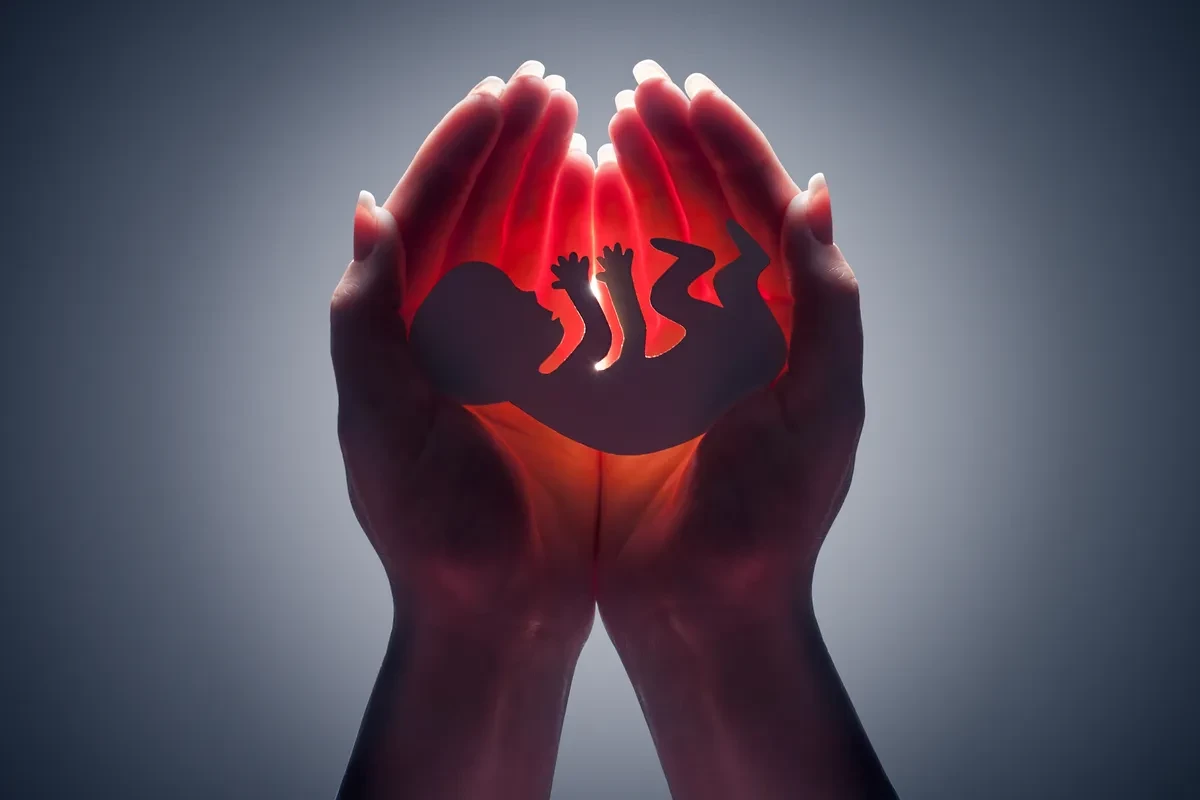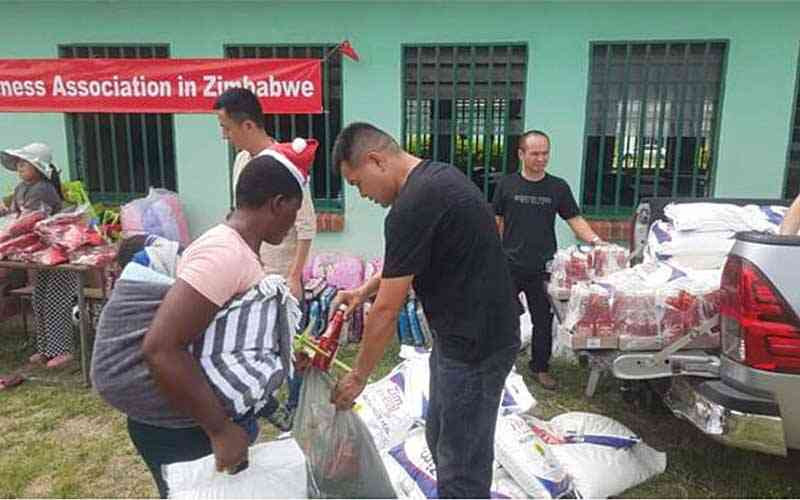
Every Monday, Wednesday and Friday at around 11 am, a notable scene unfolds in Hopley Zone 5, a high-density suburb in Harare where pregnant women make their way up to a small mountain close to Mbudzi cemetery.
They are not just taking a walk but are on their way to attend one of the three days a week exercises under the watchful eye of their local antenatal care instructor, Sithembile Mawe (41).
Mawe is not an ordinary instructor but an apostolic white garment prophetess and a traditional midwife with over a decade of experience. To date, she has safely delivered more than 900 babies.
This is the seventh part of the series, The high cost of motherhood: A silent maternal healthcare epidemic in Zimbabwe, and supported by the International Women’s Media Foundation
“Registered under the Zimbabwe National Practitioners Association (ZINPA), I have dedicated my life to assisting pregnant women both spiritually and physically,” said Mawe while encouraging her group of pregnant women to take turns in doing frog jumping exercises.
With more than 10 expecting mothers on this day, most of them are either in their eighth or ninth month.
“It’s a blessing that I don't even understand how it started and how I manage it, but what I know is I help pregnant women deliver safely,” Mawe humbly shares.
Her unique balance of spiritual guidance and traditional midwifery has made her a beacon of hope for many expectant mothers in the community as her sessions are more than just physical exercises, they include prenatal coupled with spiritual guidance.
- High cost of motherhood: A silent maternal healthcare epidemic in Zim.
- High cost of motherhood: A silent maternal healthcare epidemic in Zim.
Keep Reading
Bridging the gap
In Zimbabwe, a country where access to healthcare services is a nightmare, Mawe has managed to bridge the gap between traditional practices and needs, offering a maternal healthcare service deeply rooted in the community’s socio-economic fabric.
“Initially, I used to conduct antenatal examinations and exercises only, but now women are giving birth under my supervision and soon after they give birth I refer them to the clinic for postnatal care, ” she said.
The women who attended these sessions speak highly of Mawe’s guidance. They believe that her spiritual visions and practical advice have significantly contributed to their health and the safe delivery of their babies.
For most women in the Hopley community, it is the struggles that they experience in public health institutions during pregnancy that drove them to opt for Mawe's maternal supervision.
Maternal health in Zimbabwe has for years been deteriorating, witnessing high records of neonatal mortality, leaving many women with no trust in public health institutions in the country.
The loss of pregnant women in Zimbabwe contributes to the approximately 6 500 newborn deaths every day as revealed by a latest report by the World Health Organisation.
Among the pregnant women at Mawe’s shrine is Sandra Sesedza (22) from Mutare who is now in her ninth month.
Sesedza was introduced to Mawe by her uncle following a stillbirth she exprienced in 2023 at her rural homestead.
"My rural homestead is far away from the local clinic, so when I experienced labour pains, I struggled to get transport to the clinic and spent more than four hours at the bus station.
"By the time I got transport and reached the clinic it was too late. I was transferred to Sakubva Hospital in Mutare where I was informed that I had a stillborn and I couldn't push since the baby was too big,” Sesedza said.
She had to undergo operation to take her lifeless baby out.
“Although I come from Mutare which is about 265 km from Harare, I decided to come and deliver at Mawe’s shrine because many people speak highly of her. I feared that I might face the same dilemma as before and ‘mama Mawe’ gives me hope every day.
“She gives us holy water to wash away evil spirits and any form of curse that may affect our pregnancy,” Sesedza said.
However, with the physical exercises she performs she has high hopes that this time she is going to embrace her baby.
"Through these exercises, I am expecting to give a live birth because in my previous pregnancy I wasn't doing any exercises," said Sesedza.
Samantha Manawa*, 17, is also among the women who attend the session.
Desperate to embrace her baby this time around, the eight-month pregnant teenager travels from Glen Norah to Hopley for Mawe's services.
"I had my first pregnancy three years ago, but I had a miscarriage at two months. After that I struggled to conceive, so I came here intending ‘kuuchikwa’ in Shona meaning which seeks to strengthen a woman's fertility. She gave me spiritual guidance and fertility concoctions until I managed to conceive this pregnancy", said Manawa.
As the women gather for their exercises, they also share their experiences, fears and hopes.
Amnesty International campaigns co-ordinator, Roselina Muzerengi, said the deterioration of the healthcare sector in Zimbabwe has made expecting mothers more vulnerable.
“For some who suffered from ill-treatment at public hospitals and those that have heard about it, they are now shunning away from using public health facilities and rather opt for traditional birth attendants.”
According to its Facebook post, ZINPA is very vibrant organisation that represents the interests of all traditional healers and practitioners, who include, traditional healers, herbalists, faith healers and midwives said traditional medical practitioners were an integral part of the African society.
They clamoured for a conducive environment for them to operate considering that the practice of traditional medical practitioners has always been affected by some misconceptions.
*Not her real name
International Women’s Media Foundation











